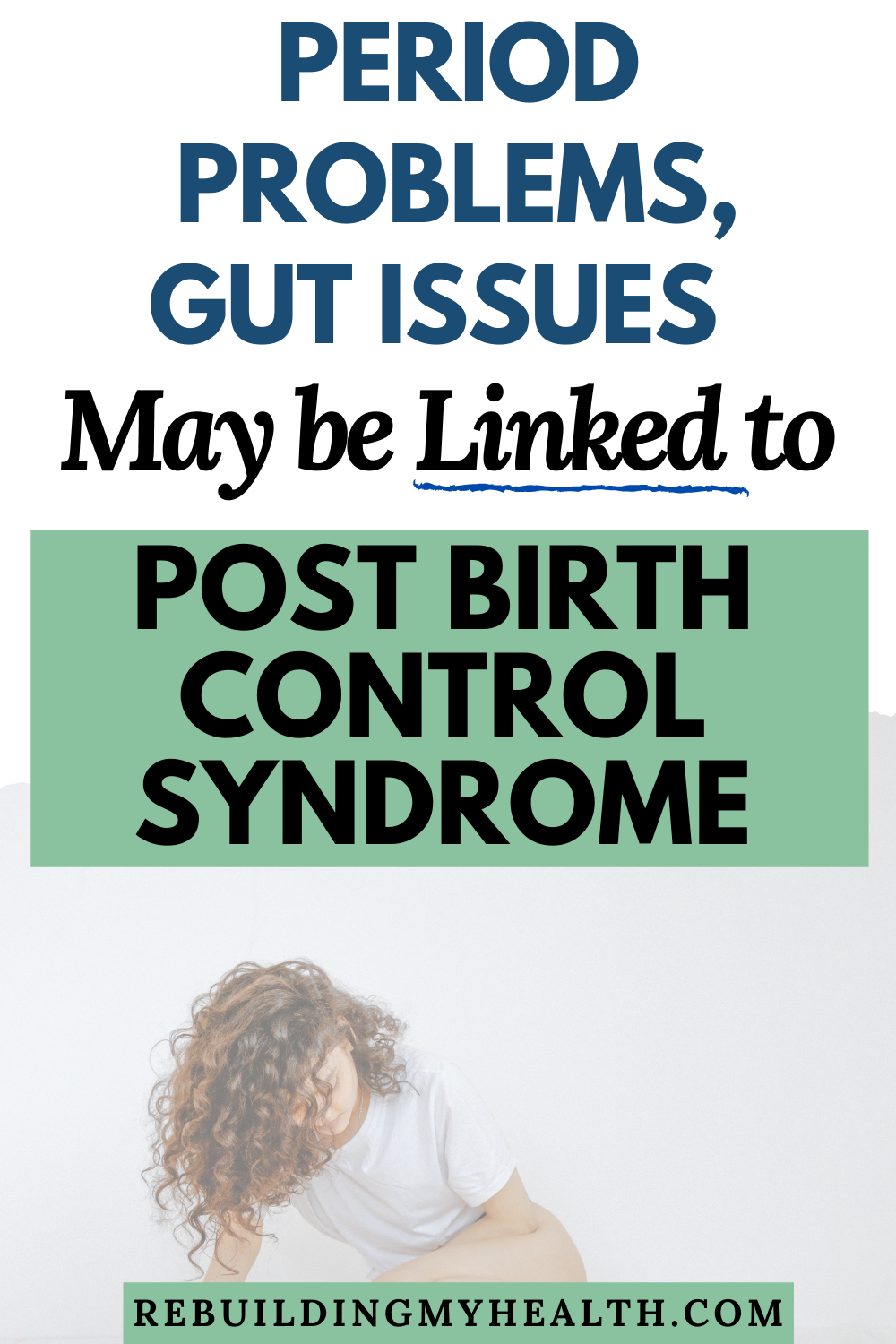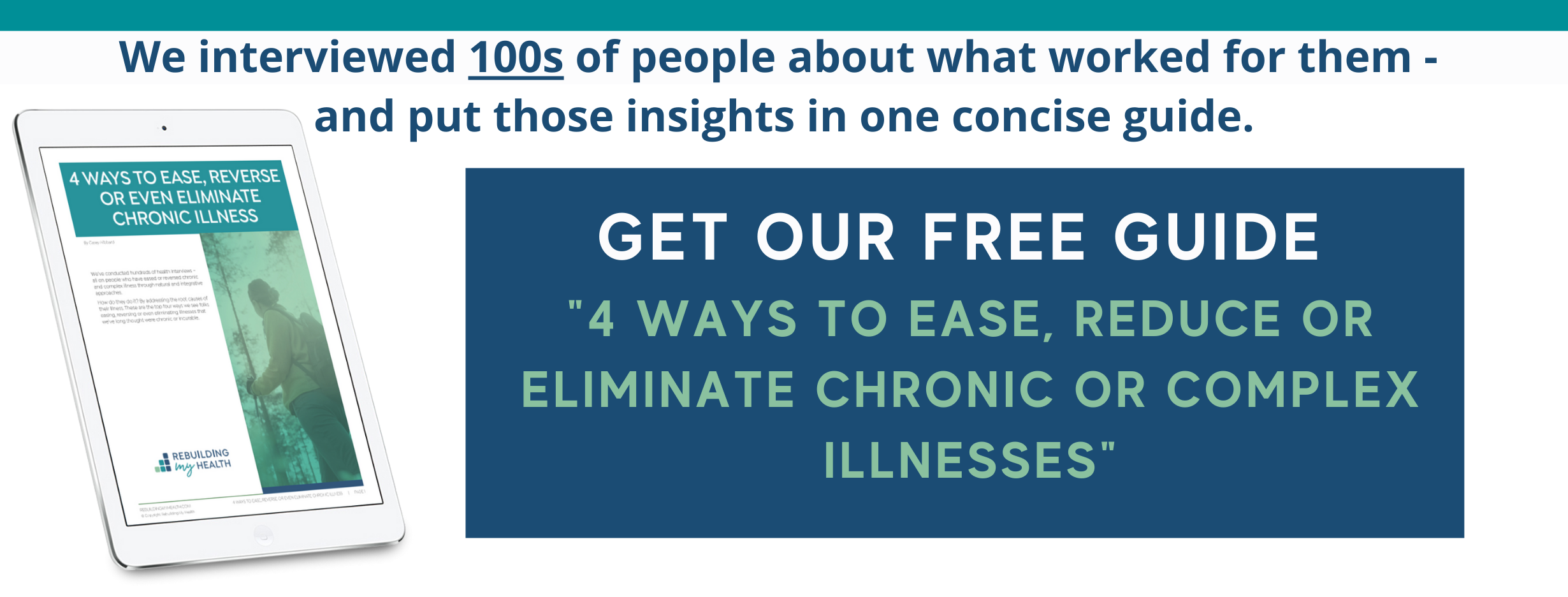Woman Eliminates Period Problems, Gut Issues and More, Related to Post-Birth Control Syndrome
“For as many years as you were on birth control, it can take about the same number of months of really focusing on your body. If you’re on it for 15 years, it might take you a good year and half of really working towards loving your body back into health. You should be feeling better along the way.”
– Dr. Jolene Brighten
For 15 years, Rachel* had taken oral birth control pills. Then in her early 30s, it was time to come off them.
But within a few months of stopping the pill, an avalanche of ailments began.
Her skin broke out in cystic acne for the first time in her life.
Her hair started falling out.
Her anxiety spiked.
She suffered from indigestion, gas, bloating and intermittent constipation.
And her periods were erratic. She would go months without one. And when it did arrive, it would come on mightily and with clots.
A Name for Her Symptoms: Post-Birth Control Syndrome
Rachel soon learned that her symptoms could all be attributed to what is called post-birth control syndrome (PBCS).
Dr. Jolene Brighten, a functional naturopathic medical doctor and author of Beyond the Pill, describes PBCS as a group of symptoms that come on within a few months of stopping hormonal birth control. Women might experience loss of menstruation or heavy, painful periods, infertility, polycystic ovary syndrome (PCOS), hypothyroidism, gut dysfunction, autoimmune symptoms and more.
“Birth control depletes nutrients that are needed specifically to build hormones and also detoxify through your liver,” Brighten says. Our bodies rely on the liver for metabolism, detoxification, nutrient absorption, blood sugar balance and immune system function.
Dr. Brighten says that as much as much as 40 percent of women coming off birth control experience post-pill irregularities in their periods and many of the symptoms above, plus more.
Detox and Replenish
For help, Rachel turned to Dr. Brighten, and together they began a protocol to bring Rachel’s hormones and health back into balance.
They started with a 14-day detox regimen to clear the synthetic hormones from taking the pill – primarily stored in the liver. Rachel took castor oil and other supplements, including liposomal glutathione, N-acetylcysteine (NAC), milk thistle, diindolylmethane, calcium-d-glucarate, dandelion root tea, quercetin and resveratrol.
At the same time, she began critical diet changes to replace lost nutrients: three to six cups of organic vegetables a day; high quality protein (organic, grass-fed meats or legumes, nuts and seeds); hormone-healthy fats such as avocado oil and olive oil; and at least 75 ounces of water each day.
At the same time, she removed liver-aggravating foods and foods that were found to be triggers specifically for her. Dairy, unfortunately, seemed to exacerbate her acne, so it had to go.
She also cut her intake of sugar, alcohol, inflammatory fats (trans fats, canola oil, corn oil, etc.) and hormone-disrupting foods such as gluten, grains, soy and caffeine.
Dr. Brighten also recommended clearing her house of chemical-based cleaners and skin-care products.
Clearing Bad Bacteria in the Gut
Additional testing uncovered even more areas for Rachel to address. A stool test found too much yeast in her gut and too little beneficial bacteria.
“Hormonal birth control lowers microbial diversity. It also leads to leaky gut,” Brighten says. “It’s not uncommon to see overgrowth of yeast in the mouth, gut and vagina with women who are on birth control or have a history of using it.”
Rachel had suffered from recurring yeast infections throughout her time on the pill. To reduce yeast, she used Dr. Brighten’s Gut Clear supplement, which includes a combination of herbs.
Testing also turned up small intestinal bacterial overgrowth, or SIBO. With SIBO, bacteria that should only live in the large intestine takes up residence in the small intestine, causing diarrhea, constipation, gas, bloating or all of the above.
Dr. Brighten also suspected leaky gut, or intestinal permeability, when the lining of the intestines is broken down and allows food particles to enter the bloodstream.
For all that, Rachel began a regimen to heal and seal her gut, including glutamine, slippery elm, zinc carnosine and antimicrobials such as caprylic acid.
Meanwhile, she added MegaSporeBiotic, a spore-based probiotic that helps recolonize the gut.
Finally, they worked to rebalance Rachel’s estrogen, progesterone and testosterone levels. She wasn’t metabolizing estrogen well, so Dr. Brighten had her take a supplement with a mix of vitamins, minerals and herbs to replenish missing nutrients and regulate her cycles.

Back in Balance
Within about 15 months, Rachel brought her body back into balance after post-birth control syndrome.
“For as many years as you were on birth control, it can take about the same number of months of really focusing on your body,” Brighten says. “If you’re on it for 15 years, it might take you a good year and half of really working towards loving your body back into health. You should be feeling better along the way.”
The protocols Rachel followed regulated her periods, cleared her skin, normalized her gut and stopped the hair loss. It also fixed a few longstanding issues Rachel hadn’t previously connected to the pill, such as vaginal dryness, yeast infections and a low libido.
“The entire time she was on the pill, like so many of us, she had no libido, and that was something she was able to get back as well, which was really cool,” Brighten says.
Off the pill, Rachel no longer suffered from depression and her post-birth control syndrome anxiety melted away too.
“Whenever we’ve got mood issues, we do have to look at the environment, but we also have to look at what’s going on with the hormones because there are many hormones that can contribute to mood disorders,” Brighten says.
Today, Rachel is free from all the symptoms that sent her to Dr. Brighten’s office.
As an alternative to hormonal birth control, Rachel used condoms until she got the hang of the fertility awareness method.
A Protocol for On the Pill or Off It
Dr. Brighten stresses that her protocol works not only for women coming off the pill but for those choosing to stay on it but wanting to mitigate the effects of it.
As Brighten spreads awareness about PBCS, she says that some in the conventional medical community are likewise taking notice.
“A lot of doctors are writing to me saying, ‘You know, I wasn’t taught this in my medical school residency, but I’ve seen these things in my clinical practice,’” Brighten says. “There are so many clinicians that are like, ‘I didn’t know what the heck to call it. But yes, I know exactly what you’re talking about.’”
Dr. Brighten’s book cites dozens of studies that show a correlation between hormonal birth control and many of the ailments Rachel and others have experienced. And while on the pill, they have a higher risk of stroke, heart disease, diabetes, autoimmunity and certain cancers.
A meta-analysis of multiple studies found evidence linking the use of oral contraceptives to an increase in multiple sclerosis, ulcerative colitis, Crohn’s disease, Systemic Lupus Erythematosus, and interstitial cystitis.
A Harvard University study found at least five years of birth control use can triple the risk of developing Crohn’s disease.
Dr. Brighten stresses that she’s not anti-pill. But rather, she believes women need all the information to make an informed choice about starting hormonal birth control.
“I was on the pill for 10 years and was a first-generation college student,” she says. “We need a way of not getting pregnant, but we also need all the information so that when we elect for a medical intervention, we actually know what we’re getting into.”
“You should be able to ask the questions, have the information and also have the access,” she adds. “I don’t think it needs to be either/or.”
*Name has been changed for privacy purposes
If you found this story helpful, you may also like How Treating Low Progesterone Prevents a $20K Surgery.
The information on this site is for educational and inspirational purposes only and is not intended to replace the advice of qualified professionals. Keep in mind that what works for one person may not work for another. Always consult your healthcare practitioners before beginning new approaches or treatments. Some links on Rebuilding My Health may be affiliate links. This means that we may receive a commission - with no additional cost to you - if you make any purchases using those affiliate links. Rebuilding My Health is a participant in the Amazon Services LLC Associates Program. Learn more.


